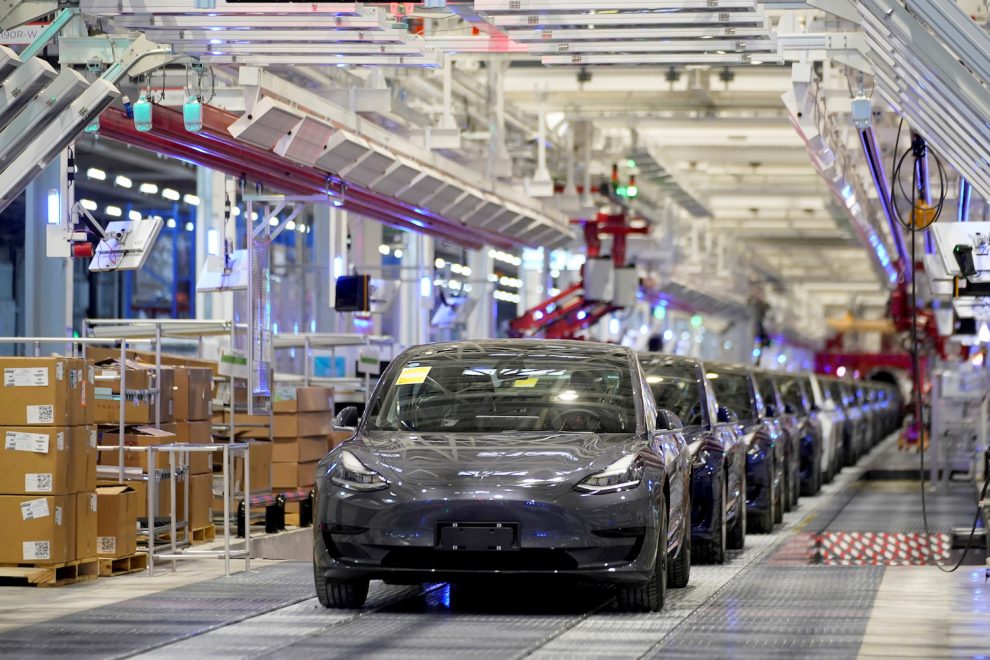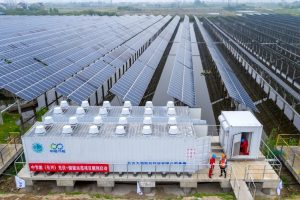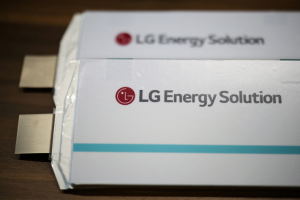US President Joe Biden, in office less than a week, is pressing full steam ahead with his friendlier green footprint agenda for the world’s largest economy.
On Monday, he said, without giving details, that the US would replace the government’s gasoline-powered fleet of cars and trucks with electric vehicles (EVs). He announced the plan during an expansion of the ‘Buy American’ act executive-order press conference.
During the presidential campaign, Biden proposed a ‘Buy American’ plan calling for a US$400 billion, four-year increase in government purchasing of US-made products and services.
Read more: Myanmar crisis poses risks to global rare earth supply chain
“The federal government also owns an enormous fleet of vehicles, which we’re going to replace with clean electric vehicles made right here in America, by American workers,” he said, adding that the electrification of the fleet would create jobs for autoworkers.
It would be “the largest mobilisation of public investment in procurement infrastructure and research and development since World War Two.”
However, that may be easier said than done given major obstacles to put the idea into practice, at least in the short-term. First, EVs have not yet reached economies of scale, meaning they are still more expensive than their fossil fuel alternatives.
Second, there are only a small list of EV choices available in the US since the sector is still in its early stages. Currently, only General Motors (GM), electric car company startup Telsa, and Japanese auto firm Nissan Motors make EVs in the US.
FORD’S STRUGGLES
Ford, which has been struggling for years to remain both profitable and even relevant in vehicle markets both at home and abroad, also has plans to enter the EV market in the near future.
GM, for its part, which claims to be on its way to being full electric, without giving any time frame for such a difficult to achieve goal, has plans to produce as many as 30 EV models by 2025, two-thirds which will be available in North America – an ambitious plan, that if achieved could help it gain EV market share in a growing list of tough competitors worldwide.
The company has also created a new division, EV Growth Operations, dedicated to creating new EV models and the software and services to go with them.
The legacy auto maker currently offers the most choice in its EV collection from some of its various brands, including Chevrolet, Buick, GMC, and Cadillac. The cost of its smaller four-door Chevy 2021 Bolt EV starts at US$36,500.
Telsa currently lists four EV models for sale in the US, with its top of the line Model X starting off at an eye-popping US$82,000, its Model S at US$70,000, Model Y at nearly US$50,000 and Model 3, its smallest vehicle, at US$36,000.
GOVERNMENT CONTRACT
Of course, these are retail prices, while any government contract would significantly lower these costs.
Nissan Motors, for its part, is still focusing more on the Chinese auto market, the world’s largest, and as such offers three of its seven EV models for sale in the US, with its smaller four-door Model S listing at just under US$32,000.
The US government has a massive vehicle fleet at its disposal. In 2019, the most recent year for data, it had more than 645,000 vehicles in its fleet, according to the US General Services Agency.
Of those, around 224,000 were passenger vehicles and more than 400,000 were trucks, including 272,000 light trucks, 102,000 medium-duty and 39,000 heavy trucks. The fleet also includes around 8,000 other vehicles like buses and ambulances.
Biden’s ambitious plan has already led to early disagreement over its merits. Several democratic senators, not surprisingly, praised the president’s move, while Freedom Works, a conservative advocacy group, criticised the plan.
WIDENING DEFICIT
Freedom Works President Adam Brandon said that even though the order sounds nice, at the end of the day, “it’s only going to raise the prices of what government buys with American taxpayer dollars amid a widening deficit”.
However, given projected EV demand not only in the US but globally, in addition to Biden’s recently announced plan, the US auto sector will likely rise to meet the need.
“The current offerings are pretty slim but the industry’s about to unleash an avalanche of new product, and a lot of it built in North America,” Kristin Dziczek, vice-president of industry, labor, and economics at the Center for Automotive Research, told CNBC on Monday. “Just about every US plant is going to have a hybrid or electric product.”
These US manufacturers will also gear up to meet global EV demand, including the likelihood that more G20 nations, and possibly others, could follow Biden’s EV ambitions for their own respective governments as they try to reduce their carbon footprints and meet their own individual Paris Climate Accord pledges.
























